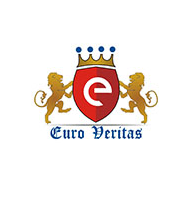 |  |
ISO 14001:2004 specifies requirements for an environmental management system to enable an organization to develop and implement a policy and objectives which take into account legal requirements and other requirements to which the organization subscribes, and information about significant environmental aspects.It applies to those environmental aspects that the organization identifies as those which it can control and those which it can influence. It does not itself state specific environmental performance criteria.
ISO 14001:2004 is applicable to any organization that wishes to establish, implement, maintain and improve an environmental management system, to assure itself of conformity with its stated environmental policy, and to demonstrate conformity with ISO 14001:2004 by
• making a self-determination and self-declaration, or
• seeking confirmation of its conformance by parties having an interest in the organization, such as customers, or
• seeking confirmation of its self-declaration by a party external to the organization, or
• seeking certification/registration of its environmental management system by an external organization.
All the requirements in ISO 14001:2004 are intended to be incorporated into any environmental management system. The extent of the application will depend on factors such as the environmental policy of the organization, the nature of its activities, products and services and the location where and the conditions in which it functions. ISO 14001 can be used in whole or in part to help an organization, for profit or not-for-profit, better manage its relationship with the environment. If all the elements of ISO 14001 are incorporated into the management process, the organization may opt to prove that it has achieved full alignment or conformity with the international standard, ISO 14001, by using one of four recognized options. These are:
• make a self-determination and self-declaration, or
• seek confirmation of its conformance by parties having an interest in the organization, such as customers, or
• seek confirmation of its self-declaration by a party external to the organization, or
• seek certification/registration of its environmental management system by an external organization.
One option is not better than the next. Each option serves different market needs. The adopting organization decides which option is best for them, in conjunction with their market needs. Option 1 is sometimes incorrectly referred to as 'self-certify" or "self-certification". This is not an acceptable reference under ISO terms and definitions, for it can lead to confusion in the market. Option 2 is often referred to as a customer or 2nd party audit, which is an acceptable market term. Option 3 is an independent third-party process by an organisation that is not accredited by national standard bodies. The fourth option, certification, is another independent third-party process, which has been widely implemented by all types of organisations. Certification is also known in some countries as registration. Service providers of certification or registration are accredited by national standards bodies; these service providers are usually listed on the website of the national standards body.
At Euro Veritas Ltd, we can help you take your policies a step further. We offer clients: An audit process conducted by experts in the given field.
Certification awarded by an International Certification Committee comprising senior experts, independent of the audit process itself and with a high level of appreciation of international best practice, also competent on the basis of Qualification. Recommendation for continual improvement of both policy and its implementation.
For more Information, please Contact Us..